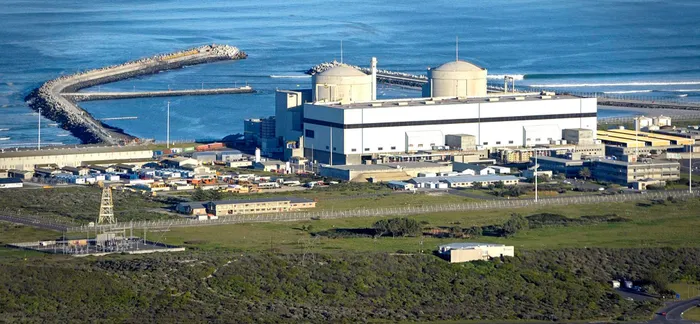Koeberg Nuclear Power Station's Unit 1 return postponed: what it means for South Africa's energy

Eskom said the return to service of Unit 1 at the Koeberg Nuclear Power plant has been moved to August, after initially scheduled to return to service in July after planned maintenance.
Image: Supplied
Eskom announced that Unit 1 at the Koeberg Nuclear Power Station, South Africa's only nuclear facility located in Cape Town, that is supposed to return to service this month, has been pushed back to the end of next month.
Currently offline for the second phase of its long-term operational maintenance programme, Unit 1 was initially expected to return to service by July 2025.
Eskom said this adjustment reflects their "unwavering commitment to thorough inspections and maintaining the highest quality standards to ensure the safety and reliability of the facility".
As part of the scheduled maintenance, detailed eddy current inspections — an essential non-destructive testing method—revealed defects in four tubes across two of the newly installed steam generators. Eskom said it acted promptly, deploying an advanced automated process to rectify the identified issues, with specialised international teams working in tandem with local experts to ensure the repairs met global safety and quality standards.
"The successful completion of these critical repairs marks a significant milestone in reinforcing the safety framework at Koeberg."
In addition to the tube repairs, the maintenance activities included the legally mandated 10-year Integrated Leak Rate Test (ILRT).
"During this rigorous test, the reactor building was pressurised over a continuous 72-hour period, carefully monitoring its leak rate and structural integrity. The results from the ILRT confirmed the robustness of Unit 1's containment structure, thereby aligning with international safety protocols."
Bheki Nxumalo, Eskom’s Group Executive for Generation, emphasized the importance of prioritising safety at Koeberg.
“Our top priority is always the safety of our employees, the public and the environment. Carrying out these additional inspections and repairs to world-class standards, we are investing in the long-term reliability of Koeberg and South Africa’s energy future,” he said.
Nxumalo reiterated that the maintenance of Unit 1 is vital for delivering decades of affordable, low-carbon power, advocating how nuclear energy contributes to economic growth and environmental sustainability.
Eskom is concurrently progressing on other generation projects, including the recently synchronised 800MW Kusile Unit 6, which is expected to enter commercial operation by September 2025.
"This year has already seen the reconnection of Kusile Units 1, 2, and 3 to the repaired west stack, as well as the return to service of Medupi Unit 4 after a prolonged outage. Together, these initiatives are aimed at bolstering generation capacity and securing a stable electricity supply."
Eskom said the revised return date for Koeberg Unit 1 is not anticipated to increase the risk of loadshedding.
"The latest Winter Outlook released in May remains valid, indicating that the planned return of 2,500MW this winter is unaffected by the status of Unit 1. The report shows that loadshedding will not be necessary as long as unplanned outages stay below 13,000MW. Even with potential increases in outages, Eskom has projected a maximum of 21 days of loadshedding during the winter season, capped at Stage 2.
As the winter season progresses, Eskom continues to encourage energy efficiency among customers while assuring them of the national power system's stability. Unit 2 of Koeberg remains operational, currently contributing up to 946MW and recording an impressive Energy Availability Factor (EAF) of 99.98% as of the end of June 2023.
Once all maintenance work is completed, Unit 1’s reactor core will undergo refuelling, testing, and will be synchronised back to the national grid. Eskom said it meticulously plans these outages to ensure that both Koeberg units are not offline simultaneously, maintaining an essential power supply for the country.
Related Topics: